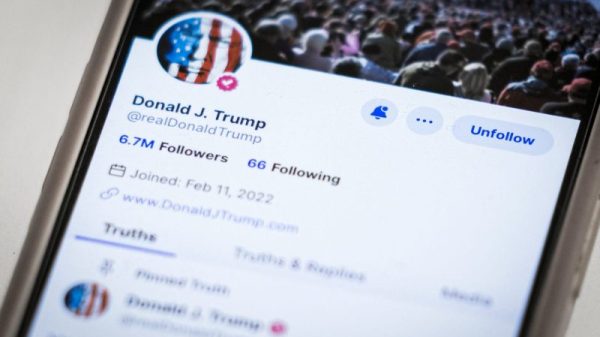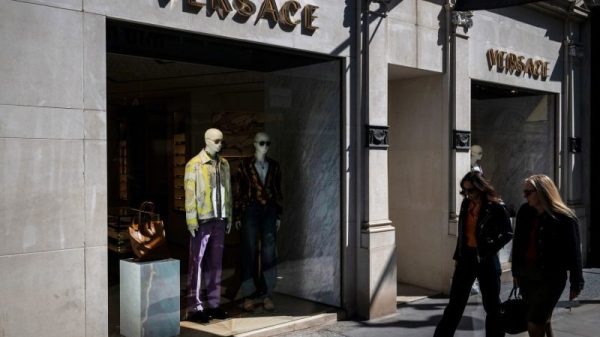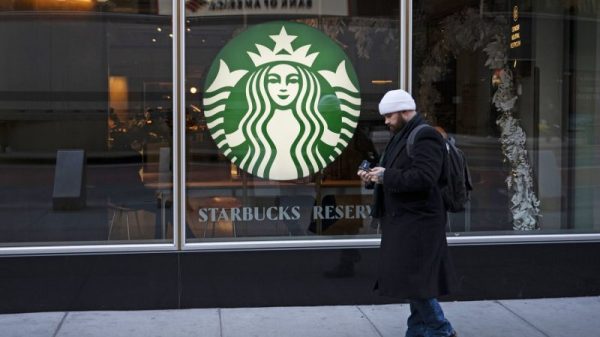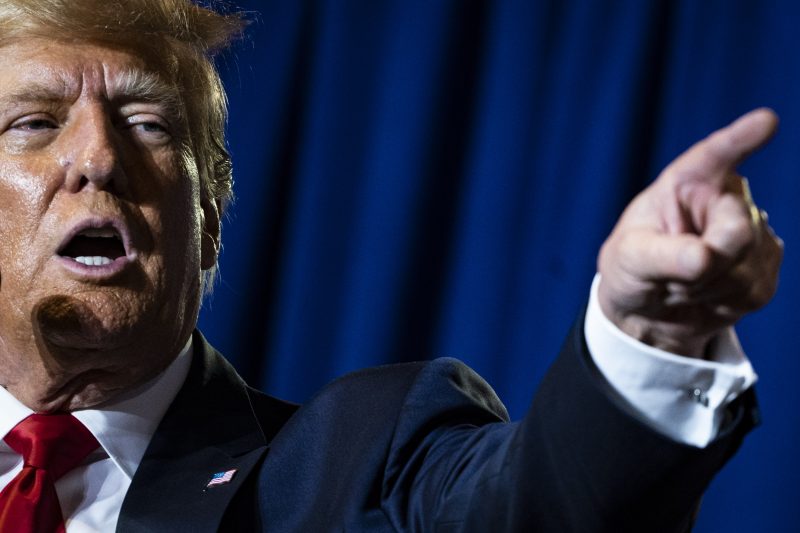The Justice Department won a court order Friday to stop former president Donald Trump from being questioned under oath on May 24 by attorneys for two former senior FBI employees who have alleged that they were targeted for retribution after the investigation of Russian interference in the 2016 presidential election.
U.S. District Judge Amy Berman Jackson agreed to the order after Justice Department attorneys notified her Thursday that U.S. Solicitor General Elizabeth B. Prelogar had approved the extraordinary step of seeking a writ of mandamus from an appeals court to overrule her earlier decision if she did not revisit it. On Feb. 23, the judge allowed Trump and FBI Director Christopher A. Wray to be deposed by attorneys for former senior FBI agent Peter Strzok and former FBI lawyer Lisa Page, who exchanged politically charged text messages criticizing Trump while they were having an affair.
Strzok seeks reinstatement and back pay over what he alleges was his unfair termination. Page alleges that officials unlawfully released the trove of messages to reporters.
The two former FBI employees want to learn whether Trump pressured FBI and Justice Department officials to retaliate against them. But the Justice Department argued that Trump may not be deposed before Wray, under the long-standing “apex doctrine” that litigants must interview lower-ranking officials first and exhaust other sources of information before questioning high government officials.
“As the Court itself acknowledged, Director Wray’s testimony could obviate the need for any deposition of former president Trump,” Christopher M. Lynch wrote for eight Justice Department Civil Division leaders and trial attorneys. For example, Lynch wrote, Wray could say he did not receive or convey any pressure from Trump.
The Justice Department said it acted Thursday because it only recently learned of the timing of Trump’s deposition.
On Friday, Jackson stood by her ruling but granted the department’s request. While the government seemed “chagrined” that the judge did not initially order Wray to go first, the court had made clear its view that the FBI director is the only high-ranking public official still in office whose essential duties most squarely fall under the doctrine’s protections. At the same time, Trump’s “own public statements concerning his role in the firing of the plaintiff” contributed to her ruling, Jackson wrote in a court notice.
“The Court’s ruling was appropriate in light of all of the facts,” Jackson said. “However, in order to get the parties — who apparently still cannot agree on anything — over this impasse, it is hereby ORDERED that the deposition of Christopher Wray proceed first.”
The decision continues a storm of activity over Trump’s legal troubles stemming not only from the 2016 and 2020 elections, but also Tuesday’s verdict by a federal civil jury ordering him to pay $5 million in damages for sexually abusing and defaming the writer E. Jean Carroll nearly three decades ago. Trump also faces a New York indictment alleging felony bookkeeping fraud for hiding hush money payments during his 2016 presidential campaign. A U.S. special counsel is investigating efforts to block the lawful transfer of power after the 2020 presidential election, as well as Trump’s handling of classified documents after leaving office.
Friday’s move is the latest twist in the four-year-old Strzok and Page lawsuits. In March, the Biden administration and the Justice Department said they would not assert executive privilege on Trump’s behalf to prevent Wray’s testimony, declining to shield the confidentiality of a president’s communications with top advisers under the Constitution’s separation of powers. The department told the judge that Trump had not requested such an assertion over information covered by her order.
Friday’s court order derails Trump’s scheduled deposition in 12 days. Strzok’s attorneys wrote Justice Department attorneys on April 27 to schedule Wray’s interview in the last half of May or early June, according to the government’s Thursday filing. But no response was included, and in its filing the government said additional litigation would be required depending on Wray’s answers.
Attorneys for Strzok and Page declined to comment, along with spokespeople for the FBI and the Justice Department. The messages from 2016 between Strzok and Page discussed their intense dislike of Trump and their fear that he might win the presidency. They have fueled claims that the FBI was prejudiced against Trump since they were made public in December 2017. The exchanges have also led to scores of angry tweets and public statements by Trump and his supporters against the pair as well as former FBI director James B. Comey and his deputy, Andrew McCabe.
Strzok asserted in the suit that Trump’s administration tolerated partisan political speech by federal employees — but only if it praised Trump and attacked his opponents — and alleged that his removal was “part of a broader campaign against the very principle of free speech” led by the former president.
Strzok, once a top FBI espionage and counterintelligence agent, worked on investigations looking into whether the Trump campaign coordinated with Russia to influence the 2016 election, as well as into 2016 Democratic presidential nominee Hillary Clinton’s use of a private email server while she was secretary of state.
In the course of that work, Strzok and Page exchanged messages on work phones critical of numerous politicians, especially Trump, whom Strzok derided as “abysmal” and a “disaster.”
In August 2016, after Page wrote that Trump was “not ever going to become president, right? Right?!” Strzok responded: “No. No he’s not. We’ll stop it.”
The Justice Department inspector general found that message implied a willingness to take official action to affect Trump’s prospects but found no evidence that bias impacted any action Strzok took. Strzok was removed from the Russia investigation when the messages were discovered and fired from the FBI in August 2018.
Both Strzok and Page also accused the FBI and the Justice Department of violating the Privacy Act by showing reporters a document containing nearly 400 texts between them.



























